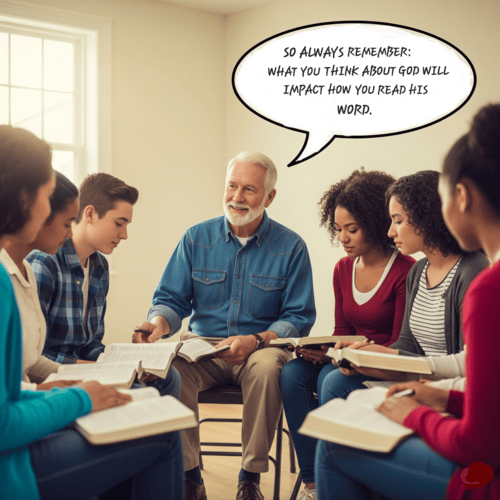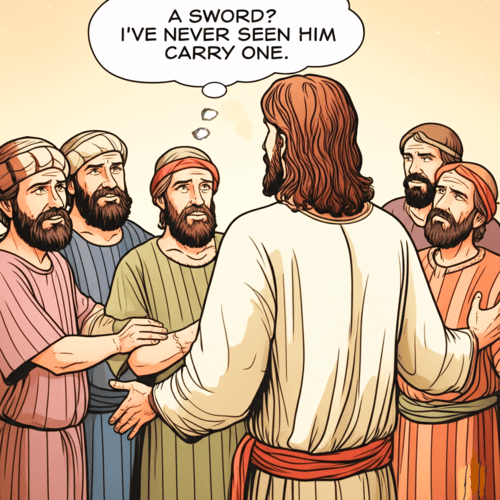Can Churches Conduct Same-Sex Weddings?
In an era of rapid cultural change, churches across America face mounting pressure to redefine their understanding of marriage. As same-sex marriage becomes legally recognised, even culturally celebrated, folks wonder whether faithful churches should adapt their practices accordingly. This question strikes at the heart of a fundamental issue: Will the church be shaped by Scripture or by society?
THE BIBLICAL FOUNDATION OF MARRIAGE
Marriage didn’t originate with human culture or evolve through social progress—it was established by God Himself as part of His original design for creation.
The Creation Mandate: In Genesis 1:27-28, we read “God created man in his own image, in the image of God he created him; male and female he created them. And God blessed them and said to them, ‘Be fruitful and multiply.’” This foundational text reveals marriage’s divine origin and purpose.
The creation account In Genesis 2 provides even greater detail. When God declared, “It is not good that the man should be alone,” He created woman as man’s complement and helper. The text culminates with Adam’s joyful recognition: “This at last is bone of my bones and flesh of my flesh” (Genesis 2:23). The narrator then explains, “Therefore a man shall leave his father and his mother and hold fast to his wife, and they shall become one flesh” (Genesis 2:24).
A Pattern Repeated in Scripture: This pattern—one man and one woman united in covenant—appears consistently throughout Scripture. When Jesus addressed divorce in Matthew 19:3-9, He pointed directly back to this creation ordinance, affirming God’s original design for marriage. The apostle Paul similarly grounds his teaching on marriage in this foundational pattern (Ephesians 5:31).
Notably, while Scripture addresses various forms of sexual brokenness and deviation from God’s design, it never presents an alternative model to male-female marriage. The consistent biblical witness, from Genesis to Revelation, upholds this singular pattern for marriage.
The Bible also speaks directly to homosexual practice in several key passages. Leviticus 18:22 and 20:13 prohibit same-sex relations within the broader context of sexual holiness. In the New Testament, Romans 1:26-27 describes same-sex relationships as contrary to God’s design, while 1 Corinthians 6:9-11 and 1 Timothy 1:10 include homosexual practice among behaviours incompatible with the kingdom of God. These passages, properly understood in their contexts, consistently affirm the biblical sexual ethic centred on male-female marriage.
THEOLOGICAL PRINCIPLES AT STAKE
For Reformed Christians, the issue ultimately comes down to the authority of Scripture. The principle of sola Scriptura—Scripture alone as our ultimate authority—means God’s revealed Word, not cultural opinion, must shape the church’s beliefs and practices. Throughout history, the church has often found itself at odds with prevailing cultural norms, from the Roman Empire’s practices to modern materialism. Faithfulness requires maintaining biblical truth even when it’s unpopular.
Marriage also carries profound theological significance beyond personal relationship. Paul describes marriage as a mystery that reflects Christ’s relationship with the church (Ephesians 5:32). The typological dimension isn’t merely illustrative—it reveals something essential about God’s covenant love and redemptive plan. Marriage between a man and woman uniquely pictures the complementary union between Christ (the bridegroom) and His bride (the church).
The complementarity of male and female also reflects the Trinitarian nature of God Himself. While equal in dignity and worth, men and women have distinct roles that mirror the ordered relationships within the Trinity. This complementarity is not merely functional but reflects deep theological truths about God’s character and design.
PASTORAL CONSIDERATIONS
Affirming biblical marriage doesn’t mean treating same-sex attracted individuals with harshness or rejection. Following Christ’s example, churches must embody both grace and truth. We welcome all people as image-bearers worthy of dignity and love, while maintaining that God’s design for sexual expression is within the covenant of marriage between a man and woman.
Many faithful Christians experience same-sex attraction while choosing to live according to biblical sexual ethics. The church must provide supportive community for these brothers and sisters, recognising celibacy is a legitimate and even honoured calling in Scripture (1 Corinthians 7:7-8). We must reject any suggestion that same-sex attraction itself is sinful while affirming that all Christians are called to align their lives with God’s design.
Common objections deserve thoughtful responses. The argument that “love is love” sounds compassionate but ignores that biblical love includes boundaries designed for our good. Cultural evolution in understanding doesn’t automatically equal moral progress—Scripture distinguishes between changeable cultural practices and unchanging moral principles. While we should minimize harm to others, we must consider long-term spiritual consequences, not just immediate emotional comfort.
STANDING FIRM WITH GRACE
So can churches conduct same-sex weddings? Churches faithful to Scripture cannot because doing so would contradict God’s revealed design for marriage. This isn’t about denying anyone’s humanity or worth—it’s about maintaining integrity to the Word of God that defines our faith and practice.
Yet we take this stand with humility, grace, and genuine love for all people. We engage respectfully with those who disagree, study Scripture carefully, support churches that maintain biblical fidelity, and point ultimately to the hope of transformation available in Jesus Christ.
In a culture increasingly hostile to biblical truth, the church’s prophetic voice becomes more important than ever. By upholding God’s design for marriage, we testify to a better way—one grounded not in shifting cultural winds, but in the unchanging character of the God who created us for His glory and our good.
CAN CHURCHES CONDUCT SAME-SEX WEDDINGS? RELATED FAQs
What legal consequences do churches face for refusing to perform same-sex weddings? In the US, the First Amendment’s religious liberty protections generally shield churches from being legally compelled to perform ceremonies that violate their religious beliefs. However, churches have faced lawsuits, loss of tax-exempt status threats, and public pressure campaigns. Some denominational properties have been seized by liberal factions, as seen in Episcopal and Presbyterian splits. Churches should consult legal counsel and consider incorporating specific marriage policies into their bylaws and statements of faith for additional protection.
- How have prominent Reformed pastors responded when asked to perform same-sex ceremonies? John MacArthur stated he would go to jail rather than perform same-sex weddings, emphasising pastoral integrity requires biblical fidelity over cultural accommodation. RC Sproul consistently taught redefining marriage attacks the very image of God reflected in male-female complementarity. Kevin DeYoung has written extensively about the impossibility of maintaining biblical authority while embracing same-sex marriage. These leaders emphasise the pastoral calling requires shepherding according to Scripture, not cultural demands, regardless of personal cost.
- What challenges do Christian wedding vendors face, and how should they respond? Christian photographers, bakers, and florists have faced significant legal battles in the US, for declining to serve same-sex weddings, with cases like Masterpiece Cakeshop reaching the Supreme Court. Many have been forced to pay fines, close businesses, or undergo sensitivity training. Reformed leaders generally counsel these business owners to operate with clear religious convictions while seeking legal protection through religious liberty organisations. The key principle is maintaining consistency—if you decline same-sex weddings for religious reasons, ensure your business practices align throughout.
How do Reformed churches handle membership and leadership questions for same-sex attracted individuals? Most Reformed churches distinguish between same-sex attraction and same-sex practice, welcoming celibate same-sex attracted members while maintaining biblical standards for sexual conduct. Leadership positions typically require adherence to biblical sexual ethics, including celibacy outside marriage. Churches like Capitol Hill Baptist (Mark Dever) and Bethlehem Baptist (formerly John Piper’s church) have developed careful policies that show pastoral care while maintaining doctrinal integrity. The focus remains on discipleship and community support rather than exclusion.
- What happens when denominational leadership contradicts local church convictions on this issue? Many faithful congregations have left mainline denominations like the PCUSA, Episcopal Church, and United Methodist Church over same-sex marriage issues, often forfeiting property and endowments. The Presbyterian Church in America (PCA) and Orthodox Presbyterian Church (OPC) have maintained biblical positions, while some Reformed Church in America congregations have split. Church planting networks like Acts 29 and denominational alternatives like the Global Methodist Church have emerged to provide fellowship for biblically faithful congregations. Local churches must sometimes choose between denominational loyalty and biblical fidelity.
- How should churches respond to family members who request same-sex wedding ceremonies? This presents one of the most painful pastoral scenarios, as families may face division when pastors cannot perform ceremonies for beloved relatives. Tim Keller advised pastoral gentleness while maintaining biblical conviction, suggesting pastors help families understand the theological reasons without being harsh or judgemental. Many pastors recommend affirming love for the family member while explaining that pastoral integrity requires biblical alignment. Some suggest alternative ways to show love and support that don’t compromise biblical truth, while helping families navigate these difficult relational dynamics.
What practical steps can churches take to prepare for these situations before they arise? Proactive churches should develop clear marriage policies stating their biblical convictions, incorporate these into membership materials and constitutions, and train staff in consistent responses. Many Reformed churches now include explicit marriage definitions in their statements of faith and require premarital counselling that addresses biblical marriage principles. Legal consultation helps ensure proper protections under religious liberty laws. Staff training should emphasise both doctrinal clarity and pastoral sensitivity, preparing leaders to respond with both truth and grace when difficult situations inevitably arise.
CAN CHURCHES CONDUCT SAME-SEX WEDDINGS? OUR RELATED POSTS
- Is Same-Sex Attraction Sinful? A Biblical Response
- Gender Reassignment: Can Christian Doctors Perform These Surgeries?
- Gender-Affirming Care: Is It Really Good For Our Children?
- Preferred Gender Pronouns: Do We Give In to Culture’s Demands?
- What’s Wrong with Transgender Ideology: A Christian Perspective
- My Body My Choice’? What Does Scripture Actually Teach?
- Can God Condemn Homosexuality Even If Some Are Born Gay?
- Gender in Heaven: Will We Keep Our Identity in the Afterlife?
Editor’s Pick

How God Reveals Himself to Us: General and Special Revelation
Every human heart carries an undeniable longing to know ultimate truth—to understand our place in the universe and the longing [...]

Doctrine of God and Bible Interpretation: Are The Two Connected?
Picture this: Two seasoned pastors read the same verse about God's sovereignty and human responsibility. One concludes God determines all [...]

What Did Jesus Mean: ‘I Bring Not Peace But a Sword’?
Jesus’ statement may sound perplexing to us at first read: "Do not think that I have come to bring peace [...]

The Beatitudes: The Nine Marks of Those Jesus Calls Blessed
When Jesus climbed that hillside in Galilee and began to speak, He turned the world's understanding of blessing upside down. [...]

Sacred Sorrow: Why Jesus Calls Mourning a Blessing
MAKING SENSE OF THE DIVINE PARADOX IN MATTHEW 5:4 When Jesus declared, “Blessed are those who mourn, for they will [...]

‘Sell Everything You Have…’: Are We To Do So Literally?
When Jesus encountered the rich young ruler in Matthew 19:21, His words cut through with startling clarity: “If you want [...]

Why Jesus Said ‘It’s Better I Go Away’…
THE SUPERIOR GIFT OF THE HOLY SPIRIT “Nevertheless, I tell you the truth: it is to your advantage that I [...]

What About Those Who’ve Never Heard the Gospel?…
WILL GOD SHOW THEM MERCY ON JUDGEMENT DAY? Few questions tug at the Christian’s heart like this one. Picture the [...]

Cities of Refuge: Foreshadowing Our Safe Haven in Jesus
Picture this: A man is chopping wood with his neighbour when the axe head flies off the handle, striking and [...]

Testament to Design: The Engineering Marvel of Elephants
Picture an African elephant delicately plucking a single acacia leaf with the tip of its trunk, then moments later using [...]





